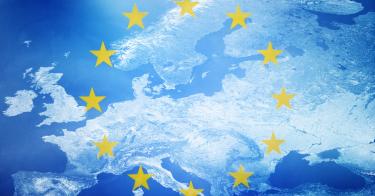Europe is declining. It’s getting richer too slowly — so slowly that it’s being left behind by the rest of the world. Strangely, that’s the result Europe prefers. Britain has a chance to escape from the European trap, but even if it does, Europe’s decline is a defeat for the United States.
There is no escaping the fact that Europe produces a smaller share of the world’s output today than it did a decade ago. To an extent, this is inevitable, and it is happening to the United States, too. Neither Europe nor the United States can outgrow the rest of the world.
All other things being equal, this loss of relative economic weight means that Europe — and the United States — will have less geopolitical heft. Of course, not all other things are always equal. But the loss of heft will arrive sooner or later. It can be delayed, not denied.
On the other hand, growth — and therefore decline — is to a considerable extent a choice. It makes an enormous difference whether Europe and the United States grow at 1 or 4 percent a year. If we adopt wise policies, we will grow faster. If we choose poorly, we will grow slower — and lose heft faster.
In my last column, I condemned the European Union’s new copyright policy, which amounts to an admission that the EU has lost the war for the commercial future of the internet. Its policy seeks to fill that gap by suing American firms.
On its own, this is a terrible policy that demands a stout American response. But it does not stand on its own. It is just one bad policy of many. These policies often sound nice. And individually, none of them is all that devastating for growth. But together, they drag the EU down.
The EU is about to require Netflix to have 30 percent locally produced content. That means EU content producers would be protected. It also means higher prices for EU consumers. Or take Italy’s “dignity decree,” which makes it harder to hire temporary workers. That’s nice for full-time workers — but it raises costs in the economy.
For two decades, the EU has proclaimed the superiority of its “European model,” which favors welfare spending over the supposedly rabid American pursuit of growth. Europe has not stumbled into slow growth: the EU chose it deliberately.
But that choice has a price: loss of geopolitical heft. That means the EU has more to lose by imposing sanctions on Russia. It means developing nations are more likely to listen to China than Europe. And it means the choice between paying for security and paying for welfare has become tougher.
Being in the EU is bad for your future. The EU has conceded this by telling Britain it can’t have a customs union with the EU after Brexit. The reason? A customs union doesn’t impose all the burdens of being in the EU, so British firms would be better off than their EU counterparts. By getting out, Britain will escape that growth-suppressing path. Britain may not decide to take that chance — but at least it will have the freedom to choose.
But even if Britain chooses well, the EU’s decline holds perils for the United States. After the end of World War Two, we rebuilt democracy in Western Europe on a foundation of prosperity. As the EU’s growth slows, its democracies will fade. Indeed, they are waning already: in Italy, we see the political turmoil that economic stagnation foments.
This danger is the result of a European preference for stability over change. But by seeking to avoid economic change, the EU will find that political change is thrust upon it. For Europe, the path to decline is the path to instability. And from bitter experience, we in the United States know the dangers of that.
This piece originally appeared in Newsday



